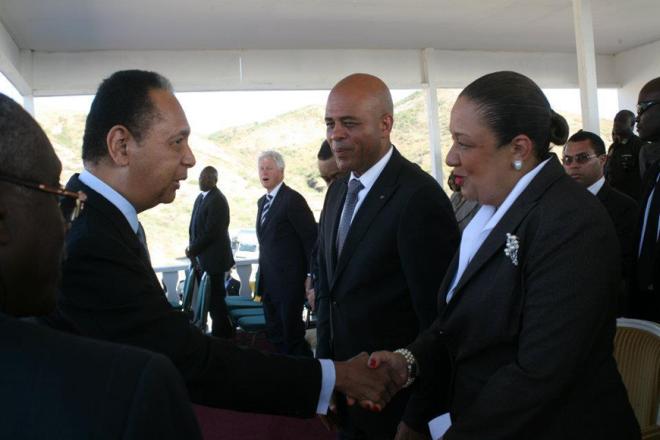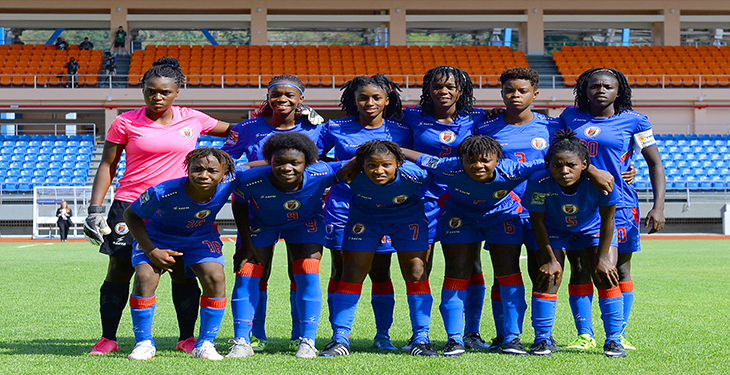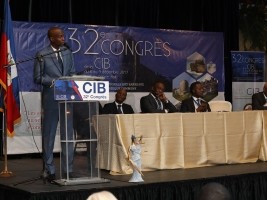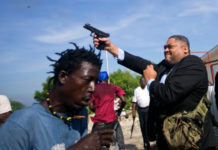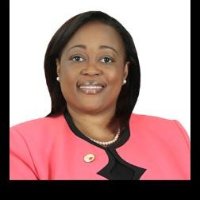Written by
RANDAL C. ARCHIBOLD (NEW YORK TIMES)
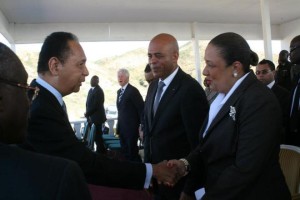
PORT-AU-PRINCE, Haiti — When he returned to Haiti from exile three years ago, Jean-Bertrand Aristide, the former priest turned president turned deposed president, promised to stay out of politics. Yet the political party he founded and continues to inspire has routinely sent thousands of people into the streets to protest the current government, demanding the resignation of the prime minister.
When the former dictator Jean-Claude Duvalier returned from exile a few months before Mr. Aristide, he kept largely to night spots and defending himself against an investigation into human rights atrocities during his rule. Yet not long ago he showed up in a seaside village to inaugurate a new political party that, however small, got a lot of people talking.
And the current president, Michel Martelly, remains locked in a standoff with political opponents over long-overdue elections, attracting waves of international dignitaries in recent weeks to try to defuse a crisis that could leave the coup-prone country without a parliament and with a president ruling by decree, an ominous echo of its autocratic past.
The story of the delayed reconstruction of Haiti after the January 2010 earthquake is largely one of unmet pledges of billions of dollars in aid from the international community. But the simmering, uncertain politics that perennially push the country to the brink of instability — and sometimes over it — have taken a more hidden toll, thwarting the kind of private investment vital to long-term development and improving its image, and laying bare yet again the fragility of democracy here.
“It’s a constant frustration to see Haitian leaders more interested in fighting each other than coming together to work together for the future of Haiti,” said Robert Maguire, a George Washington University scholar and longtime observer of Haiti politics. “Opportunities are being squandered in Haiti, right when it needs them more than ever, because the politics are so polarized.”
Mark L. Schneider, a Haiti expert at the International Crisis Group, an independent organization that analyzes conflict zones, said many investors who have expressed interest in Haiti have not followed through in part because of the unsettled politics, unfulfilled changes to business law to ease investment, and weak institutions.
“People are just holding their breath,” Mr. Schneider said. “Until the political uncertainty is resolved, a lot of people do not want to invest.”
Mr. Martelly and Parliament cannot agree on how municipal and legislative elections intended for October would be run. Without the election, Parliament could be dissolved in January, throwing the country into political chaos.
Even if the election could be pulled off, things could get unwieldy: Two-thirds of the 30-member Senate, all 99 seats in the lower chamber and hundreds of municipal offices would be at stake.
Both sides blame the other for intransigence. Mr. Martelly, his opponents say, has always wanted to rule by decree and so until recently, facing tremendous international pressure — including an Oval Office urging by President Obama — he has dragged his feet on negotiating for elections. Martelly supporters counter that members of Parliament have stalled because they wanted to extend their terms and weaken the president ahead of the presidential election in 2015.
Mr. Martelly, who has made little secret of his disdain for Congress, is now attempting to push forward with the elections by naming his own council to run them, including last month appointing a Duvalier friend and lawyer to the panel, drawing new fire from opponents worried about the influence of the old dictator.
Although a handful of new hotels have opened or are under construction, a few new garment and other industrial factories have opened, and, officials assert, crime has dropped, there is a sense that Haiti’s redevelopment should be farther along.
Electricity still comes and goes, roads remain choked and potholed, refuse clogs drainage canals and 137,000 people remain in encampments — though that’s down from 1.5 million after the earthquake.
On the streets people complain that the halting rebuilding has not done enough to narrow the deep chasm of inequality that has long bedeviled the country and often stirred political dissent.
“In the media they say they are doing this and that, but not around here — it is all the same,” said Jean Lucknef, 38, an unemployed laborer in the Fort National neighborhood, one of the hardest hit in the quake. “No matter who is elected it is all the same. The government was supposed to create jobs, and we have none while we all have children to worry about.”
He swept his hand around a group of idle young men, some smoking marijuana, who admitted they have participated in protests but denied, as some Martelly supporters have said, that they were paid to do so.
“We want the change that we were promised,” said one, who declined to give his name out of fear of reprisals from the police.
Mr. Martelly met last week with members of the Senate to reach a new compromise for elections, but talks ended without an agreement.
Haiti’s newly appointed Cardinal Chibly Langlois had mediated a previous agreement to hold the elections, but it has not been ratified by the Senate because six members refuse to sit, denying a quorum for the vote.
As part of that agreement, reached among some 50 political parties but boycotted by some of the largest Martelly opponents, Mr. Martelly’s prime minister, Laurent Lamothe, agreed to shake up the cabinet — the third one in two years — in a bid for more openness with the opposition. Haitian journalists, however, could find few if any dissident voices among the new appointees.
Mr. Aristide’s Fanmi Lavalas party was conspicuously absent from the agreement.
The party has splintered over internal disagreements since the return of Mr. Aristide, a touchstone figure of the left here and abroad who ushered in Haiti’s first democratic elections in 1991 in a coup-interrupted first term but left on an American military airplane in his second term in 2004 as dissent threatened to topple him.
Maryse Narcisse, the party’s coordinator and a potential candidate for president, said Mr. Aristide, who did not respond to an interview request, remains the “charismatic leader” of the party and offers advice as someone who “has a lot of political experience,” but mainly focuses his time on his educational foundation. She denied the party was sowing chaos but instead, like a smattering of lesser-known parties protesting in the streets, was exercising its right to hold the government accountable.
“Lavalas will continue to mobilize with the people of Haiti,” she said.
Less certain is what Mr. Duvalier is up to. Several people with ties to his regime have served in the Martelly administration or advised it, and his sudden, if fleeting, reappearance on the political stage was seen among analysts as a tweak to Mr. Aristide, a bitter enemy and political opposite.
Amid all the uncertainty, an array of international leaders — including ambassadors, former world leaders and members of the United States Congress — have visited Haiti in recent weeks to push for the elections and avert a worsening of the crisis.
The lack of elections this year “would engender yet another political crisis, with unpredictable consequences for the future of Haitian democracy,” said a statement by the United Nations and the Core Group of ambassadors from the United States, France, Canada and other primary supporters of Haiti.
The stalemate could go on. The president of the Senate, Simon Desras, has not sounded conciliatory, publicly accusing Mr. Martelly and Mr. Lamothe of violating the Constitution at best, corruption at worst. He has not pushed a vote on the accord because, he said, it is unconstitutional.
“It is the dream of the government to rule by decree,” he said in an interview. “They don’t see the danger in the streets, that many senators and members of Congress could become militants. The country would plunge into chaos if there are no elections.”


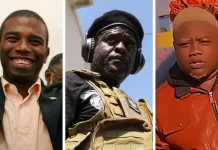
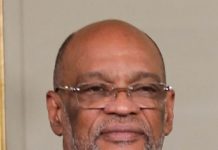

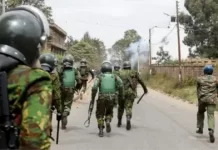



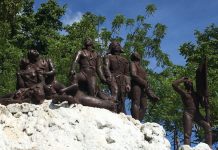



















![Phyllisia Ross – KONSA [Official Music Video]](https://haitiville.com/wp-content/uploads/2014/08/phyliisia.jpg)
